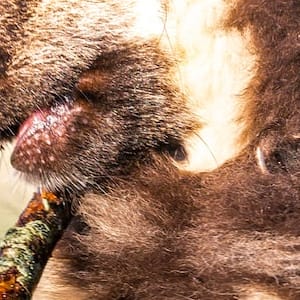kidding aside: Idiom Meaning and Origin
What does ‘kidding aside’ mean?
The idiom "kidding aside" means to stop joking or fooling around and to start being serious or sincere.

Idiom Explorer
This idiom means to exaggerate or make something seem more serious or important than it really is.
Meaning: To stop or cease doing something or to end an activity or behavior.
This idiom is commonly used to indicate the act of discontinuing or putting an end to a particular action or behavior.
*kid around*
(idiomatic) To engage in playful or lighthearted joking or teasing; to not be serious.
The idiomatic phrase "in jest" means to say or do something as a joke or in a lighthearted manner, not intended to be taken seriously.
The idiom "I'm not being funny" is used to preface a statement that may sound critical or harsh, but the speaker wants to assure the listener that they are not trying to be offensive or rude.
The idiom "have a laugh" means to find something amusing or entertaining and to enjoy a good laugh or joke.
The idiom "half joke" refers to a statement or remark that is meant to be humorous, but also contains a serious or true element. It is a way of expressing a thought or opinion in a lighthearted manner while acknowledging some underlying truth or seriousness.
The idiom "go their separate ways" means to separate or part ways, typically after a period of being together or working together.
The idiom "go straight" means to stop participating in criminal activities and to start leading an honest and upright life.
The idiom "go by the wayside" means to be forgotten or abandoned, usually due to a lack of attention or interest.
Unveiling the Depth of "Kidding Aside"
kidding aside
"kidding aside" is an idiomatic expression that is often used in informal conversation. It is used to indicate that the speaker is about to make a serious or truthful statement, after having made a joking or lighthearted remark. The idiom is commonly used in the United States and is well-known among English speakers.
The phrase "kidding aside" is believed to have originated in the mid-20th century. It is likely derived from the word "kid" which means to joke or tease. The addition of "aside" emphasizes the speaker's intention to move away from joking and speak earnestly.
When someone uses the idiom "kidding aside," they are essentially asking the listener to take their statement seriously and not as a joke. It serves as a transition from lightheartedness to a more serious or sincere tone. The idiom can be employed in various situations to convey the speaker's desire to be honest and genuine.
The idiom "kidding aside" is often used to preface a statement that contradicts or challenges a previous lighthearted comment. For example, if someone were to say, "I could eat a whole pizza by myself!" and then follow it up with "but kidding aside, I really should watch my portion sizes," they are indicating that they were initially joking about their ability to eat a whole pizza and now want to make a serious statement about their need to be more mindful of their food intake.
It is important to note that "kidding aside" is not always used in a literal sense. The idiom can also be employed to indicate a shift in conversation from a less serious topic to a more significant or urgent matter. In such cases, the phrase serves as a signal that the speaker wishes to discuss something of importance or gravity.
One related idiom that can be associated with "kidding aside" is "all kidding aside." This expression is used to emphasize that the speaker is about to make a serious statement, regardless of any previous jokes or lighthearted remarks. By using this idiom, the speaker wants to ensure that their following statement is taken seriously and not dismissed as mere humor.
Another idiom that relates to "kidding aside" is "make a mountain out of a molehill." This expression means to exaggerate or amplify a minor issue or problem, creating unnecessary drama or stress. When someone says "kidding aside, let's not make a mountain out of a molehill," they are reminding the listener to not blow a small matter out of proportion and to keep things in perspective.
Lastly, there is the idiom "in jest." This phrase is used to indicate that a comment or statement was made in a playful or joking manner, with no serious intent behind it. When someone prefaces a statement with "kidding aside, I said that in jest," they are clarifying that their previous remark was meant purely for amusement and not to be taken seriously.
To sum up, "kidding aside" is an idiomatic expression used to transition from lightheartedness to a serious or sincere tone. It is often employed to indicate that a statement should be taken seriously and not as a joke. Additionally, it can be related to idioms such as "all kidding aside," "make a mountain out of a molehill," and "in jest."
Example usage
Examples of how the idiom *kidding aside* can be used in a sentence:
- Kidding aside, I really need your help with this project.
- We've had our fun, but kidding aside, we need to start focusing on our studies.
- She may seem lighthearted, but kidding aside, she is an incredibly intelligent person.
More "Expression" idioms



